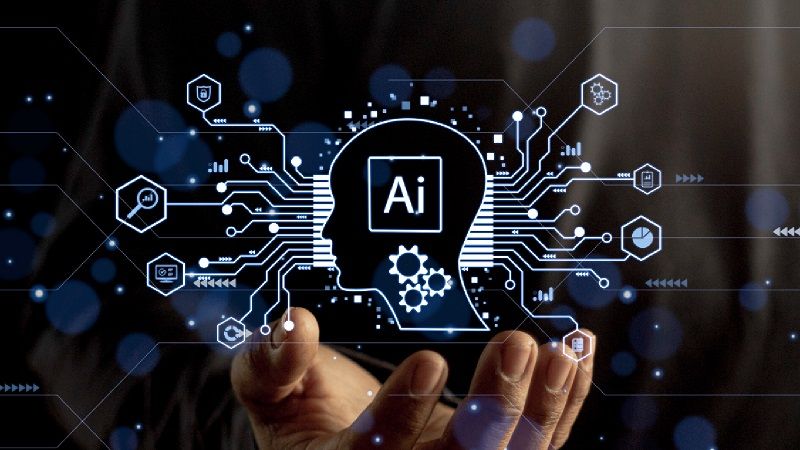
The transformative potential of Artificial Intelligence (AI) has been recognised globally, with various industries poised for revolutionary change. India understands the profound impact AI can have on its development, competitiveness and most important, its potential to create substantial social impact. AI has already entwined itself into the daily lives of individuals, exemplified by AI-powered virtual assistants like Siri and Google Assistant. Generative AI models like ChatGPT hold the promise of significant transformation in the AI landscape in the months and years to come. The momentum behind this technology is driven by substantial investments from technology giants who recognise the immense potential of AI. As India embraces the AI revolution, it presents a remarkable opportunity for startups to leverage and drive the accelerated adoption of AI across various sectors.
Driving economic growth through startups
In India, cloud platforms and AI-first Software-as-a-Service (SaaS) companies have demonstrated remarkable AI capability on scale implementations, often surpassing or matching their global counterparts. According to a survey conducted by Bain and Co., Indian providers have a significant success rate, with 65 percent of their prototypes reaching production scale. In comparison, global providers achieve a success rate of 49 percent. Many of these AI SaaS providers in India are startups, showcasing their agility and innovative approaches to corporate problem statements.

The potential value that artificial intelligence (AI) holds for the Indian economy is substantial. By 2035, AI is projected to contribute an incremental value of nearly USD one trillion, while adding approximately USD 500 billion to India’s GDP by 2025.
It accounts for approximately 10 percent of India’s target of achieving a USD 5 trillion GDP in the coming years, suggests the ICET– Forces Shaping the Future of Technology report. On a global scale, AI is anticipated to contribute a staggering USD 15.7 trillion to the global economy by 2030.
The accelerated growth of AI adoption in India also presents an immense potential for employment generation with over 45,000 AI jobs as of February 2023 alone. The demand for data science and AI professionals is projected to reach one million by 2024, reports NASSCOM. These statistics indicate the immense potential for employment generation and the positive impact AI can have on businesses and startups working on AI.
Adopting AI in Indian enterprises
In 2022, Indian enterprises displayed increased confidence in AI and expanded their investments compared to 2021, finds the State of AI in India report by Deloitte. The report projects the Indian AI market size to reach USD 71.0 billion by 2027. Enterprises are working closely with agile startups to bridge the technology gaps and to remain competitive in today’s market.
In 2023, the fear of a global economic slowdown and ongoing geopolitical challenges has introduced a level of caution in terms of the scale of investment growth, the report finds. Enterprises are expected to exercise prudence, opting for incremental investments that maximise returns from existing AI assets, with a focus on shorter payback periods. This approach is understandable, considering the uncertainties, but it does not diminish the fact that investments in AI will still be made. About 50 percent of the respondents in the survey achieved quicker than expected ROI on their AI investments in 2022, a substantial increase compared to less than 1/10th of respondents in 2021. This trend from enterprises is highly encouraging for Indian startups.

Across various industry sectors, the focus is on industry-specific use cases that reinforce core business value drivers and provide a sustained competitive advantage. Key business outcomes sought by companies include enhancing process and people efficiency, driving business growth through innovation, improving customer centricity and experience and enabling insights-based decision making.
These findings not only highlight the potential for startups in the AI sector but also underscore the pivotal role AI will play in shaping India’s business landscape, by promoting innovation and driving sustainable growth.
Consequently, the specific use cases aimed at achieving these desired business outcomes will vary from industry to industry. Several key sectors, such as Technology, Media and Telecom, Manufacturing, Banking and Financial Services, Healthcare and Life Sciences and Retail, are witnessing an increasing adoption of AI in India.
With my experience of nearly 20 years with AT&T, I can attest to the significant ways in which AI has made a difference in the telecom field. In telecom, AI has proven invaluable in various areas, including:
- Network planning and design: AI aids in the planning and design of both cellular and fibre networks, optimising their efficiency and performance.
- Network optimisation and capacity planning: By leveraging AI, telecom companies can accurately predict network demands and plan for optimal capacity allocation.
- Predictive network outage management: AI enables the proactive identification and prediction of network outages, allowing for swift resolutions and minimising service disruptions.
- Customer engagement: AI-powered solutions optimise contact centre operations, analyse customer feedback and sentiment, and facilitate intelligent automation for customer engagement through applications and web portals.
- Sustainability initiatives: AI plays a crucial role in optimising energy consumption, water management, waste reduction and overall environmental sustainability efforts.
As startups explore opportunities in the AI space, these use cases can serve as an inspiration for developing innovative solutions tailored to specific industries.
Building an ecosystem for AI revolution
India’s AI transformation calls for a collaborative effort from the entire ecosystem. The government must establish a comprehensive policy and regulatory framework, particularly concerning data privacy, security and governance.
Startup accelerators like T-Hub are innovation hubs that provide startups with a space to innovate, be mentored and grow. Industry bodies, such as Confederation of Indian Industry (CII) and NASSCOM, are also playing a crucial role in advocating the significance of AI through various physical and virtual platforms. Academia also has a vital responsibility in developing a skilled talent pool equipped with data science and AI expertise.
Collaborating for sustainable success
Indian startups hold the key to democratising AI across the country. Approximately 4,000 AI startups are engaged in emerging technologies- IoT, robotics, AI, analytics with government support.













